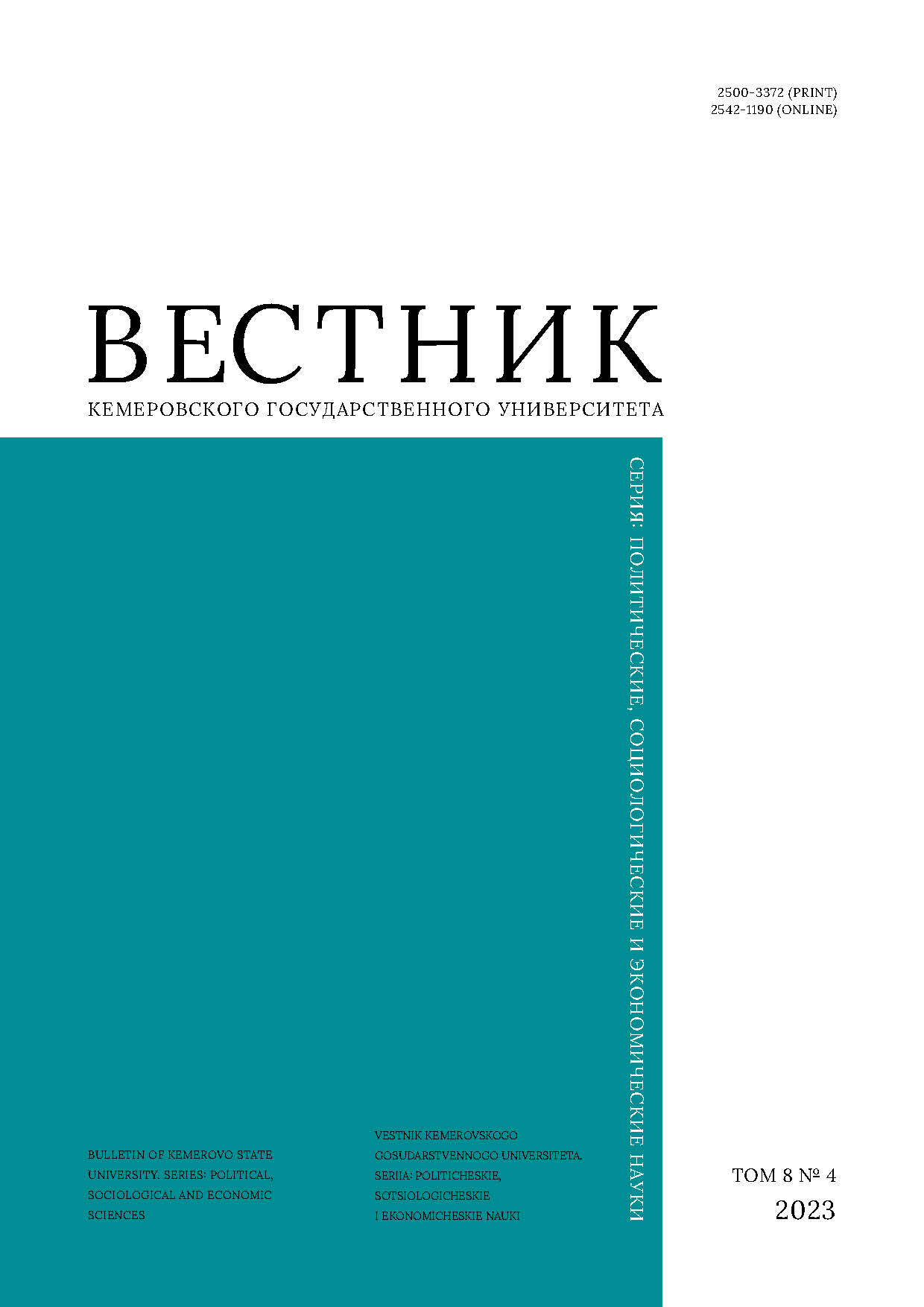Moscow, Russian Federation
Currently, the Middle East is undergoing significant changes, often due to a mixture of global and regional factors. The study is devoted to the current policies in the Middle East, in the ethnogeographic area of Kurdistan. The study researches numerous parties (political entities) of the Kurds of Iraq, Syria and Turkey, considers the events that took place in Kurdistan in 2022 and 2023. The central government of Iraq receives new levers of pressure on the leadership of the Kurdish Autonomy. At the same time, the Turkish leadership refuses to resume oil exports. Although the government of Recep Tayyip Erdoğan pursues its own goals, in this case the actions of Ankara and Baghdad coincide. Relations between the Kurdish Democratic Party and the Patriotic Union of Kurdistan remain tense on a number of issues. During the adoption of the budget law, the latter actually opposed the idea of Kurdish autonomy in Iraq. In Syria, the autonomy of the Kurds (Rojava) will exist as long as the United States maintains its presence. The Syrian government is promoting the withdrawal of Turkish troops from Syria as a precondition for restoring relations with Ankara. Turkey refuses, because the Syrian Democratic Forces are not controlled by the Damascus. Thus, the Syrian Kurds are the stumbling block of the post-war settlement in Syria. In Turkey, there is a split between the opposition and pro-government Kurds. The opposition is divided into legal and illegal. Because the government of R. T. Erdoğan won a landslide victory in the presidential elections, there is no reason to believe that a softer course will be adopted against the Turkish Kurds.
Iraqi Kurdistan, Rojava, Kurdish Democratic Party, Patriotic Union of Kurdistan, Iraq, Syria, Turkey, USA
1. Lazarev M. S. Imperialism and the Kurdish Question (1917-1923). Moscow: Nauka, 1989, 327. (In Russ.)
2. Stansfield G. R. V. Iraqi Kurdistan: political development and emergent democracy. Routledge, 2003. 278.
3. Ivanov S. M., Vertyaev K. V. Kurdish nationalism. History and modernity. Moscow: Lenand, 2015, 352. (In Russ.) https://elibrary.ru/vofnin
4. Bowlus J. V. A crude marriage: Iraq, Turkey, and the Kirkuk-Ceyhan oil pipeline. Middle Eastern Studies, 2017, 53(5): 724-746. https://doi.org/10.1080/00263206.2017.1283489
5. Kandemir E., Tuncer C. Irak - Türkiye enerji ilişkilerinin bölgenin ekonomik güvenliğine etkileri. Uluslararası Ekonomi Siyaset İnsan ve Toplum Bilimleri Dergisi, 2020, 3(1): 75-89.
6. Comparative Kurdish Politics in the Middle East: Actors, Ideas, and Interests, eds. Tugdar E. E., Al S. Cham: Palgrave Macmillan, 2017, 235. https://doi.org/10.1007/978-3-319-53715-3
7. Vedeneev I. N. Snap elections in Iraq (2021): causes and results. Vestnik Instituta vostokovedenija RAN, 2021, (3): 20-25. (In Russ.) https://doi.org/10.31696/2618-7302-2021-3-20-25
8. Aziz M. A. The Kurds of Iraq: Nationalism and Identity in Iraqi Kurdistan. I.B. Tauris, 2014, 256.
9. Ivanov S. M. Iraqi Kurdistan at the present stage (1991-2011). Moscow: IMEMO RAN, 2011, 86. (In Russ.) https://elibrary.ru/qpthyd
10. Malovany P. Wars of modern Babylon: a history of the Iraqi Army from 1921 to 2003. University Press of Kentucky, 2017. 928.
11. McDowall D. A modern history of the Kurds. I.B.Tauris, 2004, 536.
12. Marcus A. Blood and belief: The PKK and the Kurdish fight for independence. NYU Press, 2007, 351.
13. Balci A. The PKK-Kurdistan Workers’ Party’s regional politics during and after the Cold War. Cham: Palgrave Macmillan, 2017, 212. https://doi.org/10.1007/978-3-319-42219-0
14. Özcan A. K. Turkey’s Kurds. A theoretical analysis of the PKK and Abdullah Öcalan. L.: Routlege, 2005, 256. https://doi.org/10.4324/9780203019597
15. Černy H. Iraqi Kurdistan, the PKK and international relations: theory and ethnic conflict. Routledge, 2017, 358.
16. Zhigalina O. I. Mullah Mustafa Barzani. Historical portrait. Moscow: IOS RAS, 2013, 240. (In Russ.)
17. Okrest D., Petrov D., Lebskii M. Life without a State: revolution in Kurdistan. M.: Common place, 2017, 366. (In Russ.)
18. Flakh A., Aiboga E., Knapp M. Kurdistan. Real democracy during the war and the blockade. M.: Radikalnaia teoriia i praktika, 2016, 348. (In Russ.)
19. Garapon B., Çelik A. From tribal chiefs to Marxist activists. The Cambridge history of the Kurds, eds. Bozarslan H., Gunes C., Yadirgi V. Cambridge University Press, 2021, 229-249.
20. Gunter M. M. Historical dictionary of the Kurds, 3th ed. Lanham-Boulder-NY-London: Rowman & Littlefield, 2018, 528.
21. Özpek B. B. Paradigm shift between Turkey and the Kurds: from "Clash of the Titans" to "Game of Thrones". Middle East Critique, 2018, 27(1): 43-60. https://doi.org/10.1080/19436149.2017.1415513
22. Gasratian M. A. Kurds in Turkey in Recent times. Yerevan: Aiastan, 1990, 385. (In Russ.)
23. Vedeneev I. N. The Kurdish National Movement of Iraq and Turkey in 1918-1980. Factors of mutual influence: Cand. Hist. Sci. Diss. Moscow: IOS RAN, 2022, 221. (In Russ.)
24. Yadirgi V. De-Development in Eastern and Southeastern Anatolia. The Routledge Handbook on Contemporary Turkey. Routledge, 2022, 139-156.

















